Order of Operations Teaching Resources
Make teaching order of operations easier with printable order of operations worksheets, educational math games, BODMAS rule posters and more! Created by the Teach Starter team of expert teachers, each engaging activity is ready to use in your classroom today.
Aligned with Australian maths curriculum standards, this collection of printable and digital activities will help you save time as you build lesson plans that simplify solving maths problems.
New to teaching students the rules to follow when they're solving math equations or just looking for some tips to help students better understand the order of operations? Read on for a kid-friendly explanation of the steps, plus a look at what BODMAS means and what it's called outside of Australia!
What Is the Order of Operations in Math? A Kid-Friendly Explanation
The order of operations is the set of rules that tells us the order of the steps we need to take when solving a maths equation. It helps us solve problems in a systematic way to find the answers.
The steps — or order — of operations that we follow is:
- Brackets — When there are brackets in an expression, we need to solve the operations inside these brackets first. This is the first step in the order!
- Orders —Orders such as exponents (also called powers) and roots show how many times a number is multiplied by itself, like 2 squared or 3 cubed. If there are orders in an expression, we evaluate them after dealing with the brackets.
- Multiplication and Division (from left to right) — Next in the order are multiplication and/or division. If there is more than one multiplication or division operation in an expression, we solve them in the order they appear, one after the other.
- Addition and Subtraction (from left to right) — The final step in the order of operations is to solve any addition and/or subtraction operations. Like the previous step, if we encounter multiple addition or division operations, we solve them in order from left to right.
What Does BOMDAS Stand For? Each Letter of the Acronym, Explained
Did you notice the bolding on the letters above? That's because the order of operations is often shortened to the acronym BOMDAS to help kids easily remember the steps to follow.
BOMDAS stands for Brackets, Orders, Multiplication, Division, Addition, Subtraction.
This acronym is common in the Australian education system, but don't be surprised to find a variation if you are evaluating a maths textbook from another country.
Other variations of BOMDAS include:
- BODMAS
- PEMDAS
- BIDMAS
- BEDMAS
The 'I' in BIDMAS stands for indices, while the 'P' in PEMDAS stands for parentheses and the 'E' stands for exponents.
- Plus Plan
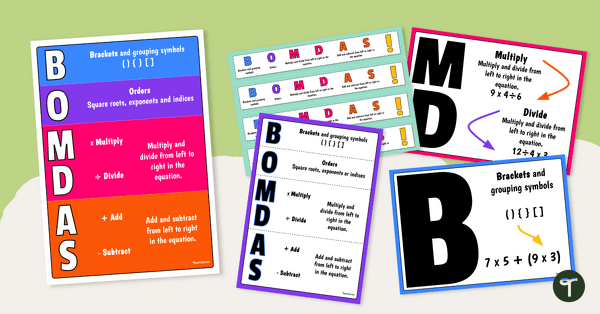
BOMDAS Poster and Bookmark Set
Use this BOMDAS poster and bookmark set to remind your students of the correct order of operations.
- Plus Plan
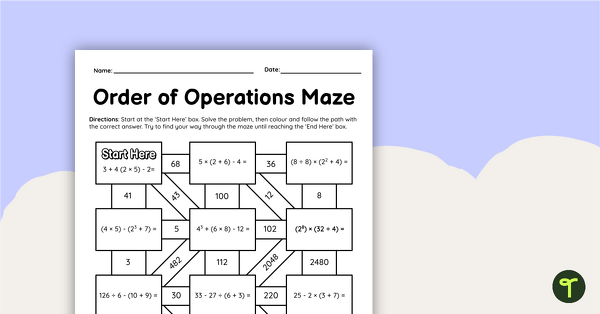
Order of Operations – Maths Maze
Evaluate numerical expressions using the order of operations with this math maze!
- Plus Plan
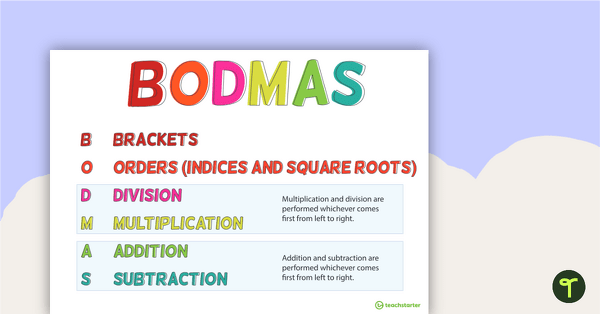
BODMAS Classroom Poster
Hang this BODMAS poster in the classroom to guide students through the order of operations.
- Plus Plan
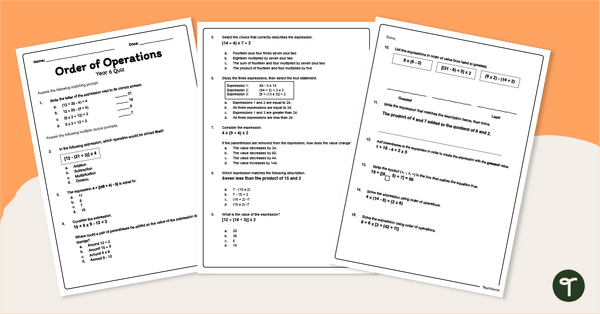
Order of Operations Quiz - Year 6
Assess your students' ability to write and evaluate numerical expressions by using the order of operations with this Year 6 maths assessment.
- Free Plan
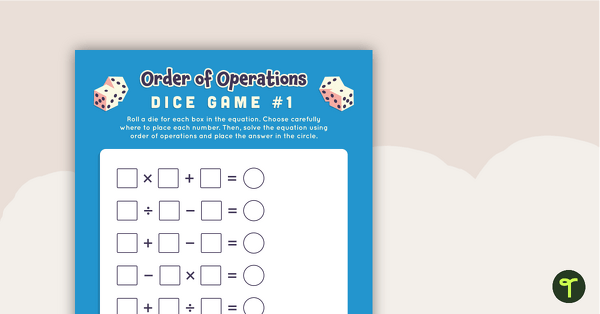
Order of Operations Dice Game
A set of 6 order of operations dice activity mats.
- Plus Plan
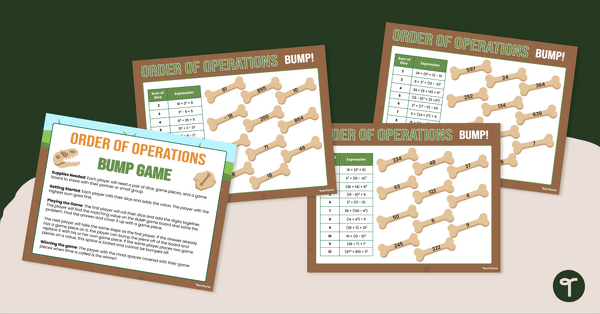
Order of Operations – Differentiated Bump Game
Use this set of Bump games to sharpen your students’ computation skills by using the order of operations to evaluate expressions.
- Plus Plan
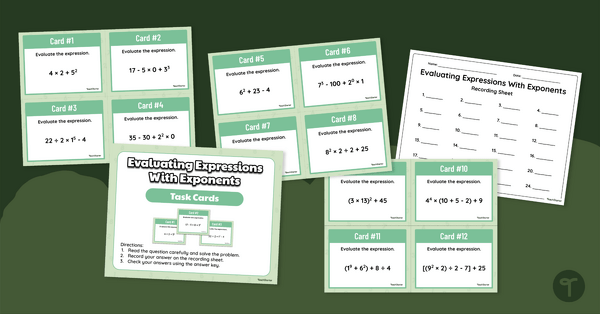
Evaluating Expressions With Exponents – Task Cards
Solve expressions with exponents by using the order of operations with this set of 24 task cards.
- Plus Plan
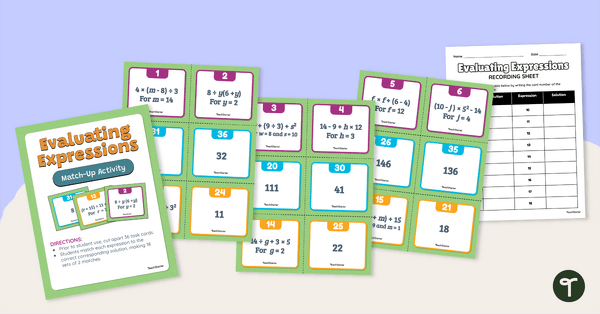
Evaluating Expressions – Match-Up Activity
Practise substituting values for variables while evaluating expressions with this match-up activity.
- Plus Plan
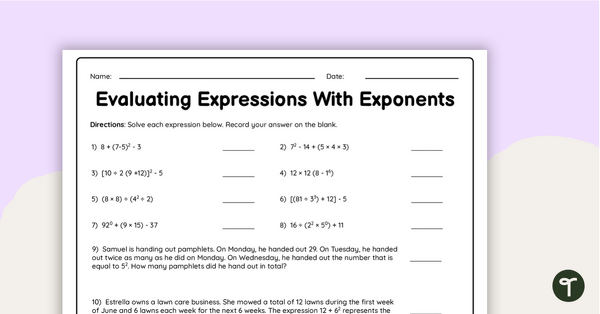
Evaluating Expressions With Exponents – Worksheet
Practise evaluating expressions with exponents with this order of operations worksheet for year 6 and 7 students.
- Plus Plan
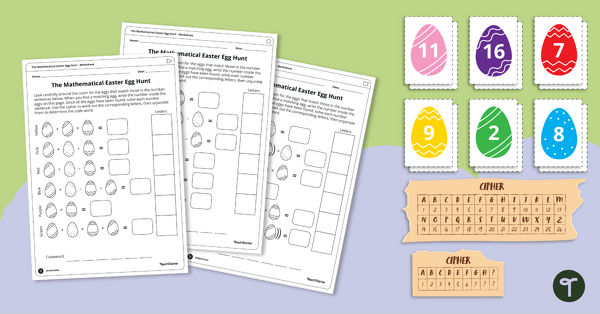
The Mathematical Easter Egg Hunt – Whole Class Game
A differentiated whole class Easter egg hunt.
- Plus Plan
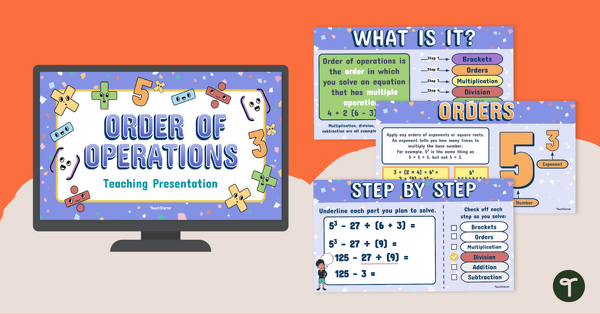
Order of Operations – Teaching Presentation
Teach your students how to correctly evaluate numerical expressions by using the order of operations with this teaching presentation.
- Plus Plan
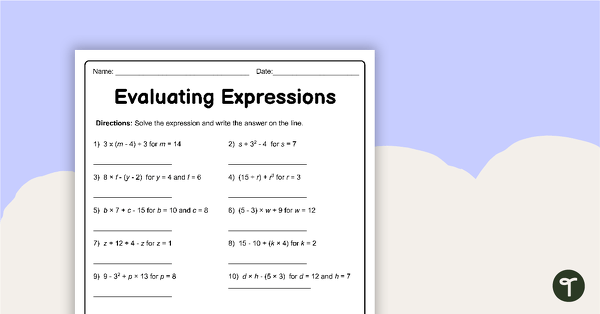
Evaluating Expressions – Worksheet
Challenge your students to evaluate expressions with one or two variables by completing this worksheet.
- Plus Plan
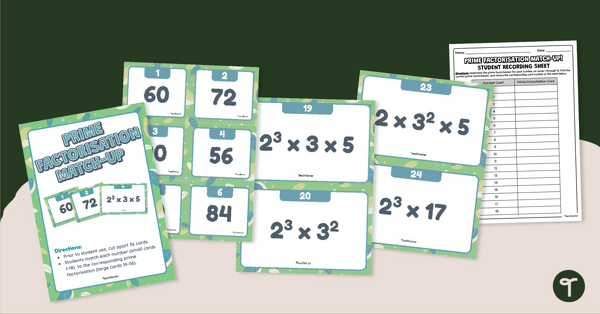
Prime Factorisation Match-Up
Practise how to find the prime factorisation of a number with this match-up activity.
- Plus Plan
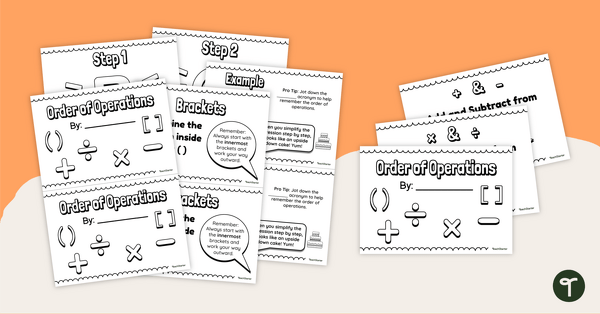
Order of Operations – Mini Book
Learn how to solve equations using the order of operations with this mini book.
- Plus Plan

Order of Operations – Interactive Activity
Solve expressions by using the order of operations with this interactive activity.
- Plus Plan
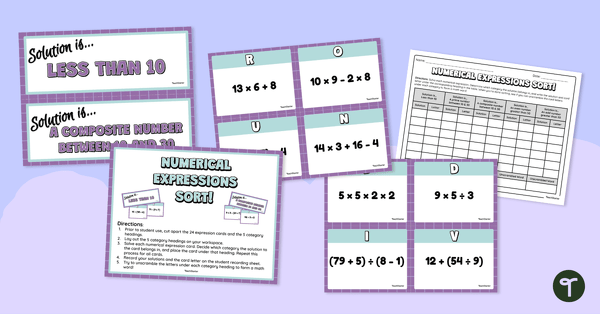
Numerical Expressions Sort
Solve and sort numerical expressions according to different categories with this sorting activity.
- Plus Plan
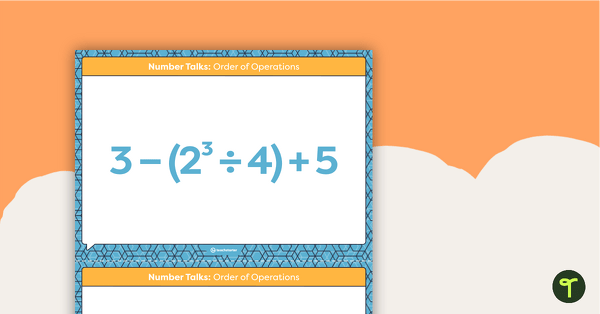
Number Talks — Order of Operations Task Cards
Build number sense skills with this set of 20 task cards.
- Plus Plan
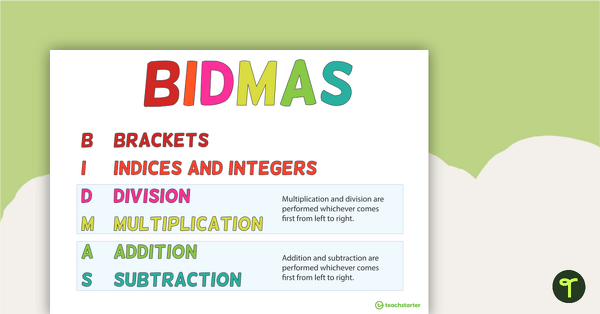
BIDMAS/BIMDAS Poster
A poster highlighting the acronym for BIDMAS/BIMDAS.